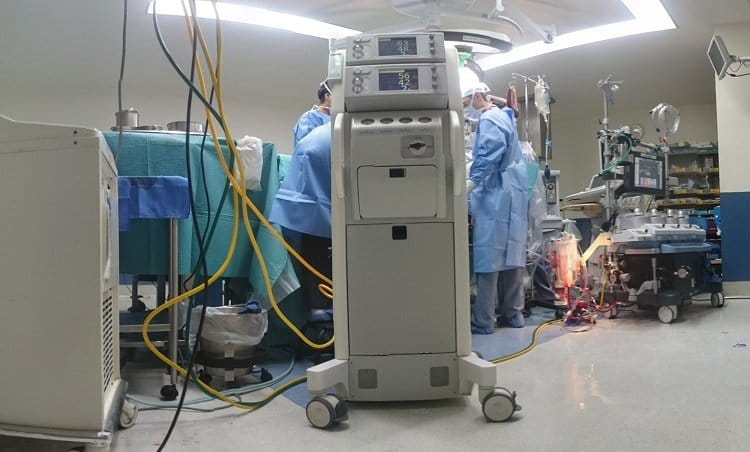The human heart is an amazing thing. We tend to look at it as more of a cautionary tale; exploring what it can’t do rather than what it can. But in reality, the human heart can accomplish quite a bit. But there are four facts, in particular, that should make everyone take extra notice of this amazing organ.
How we monitor it
This heart fact has a lot to do with both cardiology and the human spirit. People have often wondered what’s going on with this mysterious but important part of the body. The development of the EKG or ECG machine gave people the ability to see it first hand.
This advancement does say a lot about the heart. The human heart works tremendously hard; it packs quite the bioelectrical punch. An EKG is able to monitor this activity and translate it into something people can make more sense of.
As technology has advanced, this has been able to tell us more about the human heart. There’s still some debate over ecg vs ekg choices. Some are more powerful, others more portable.
But the single fact at the core of the matter is that people can actually carry around powerful heart monitoring equipment. Another interesting fact is that this has gone hand in hand with another powerful force that people often take for granted. Not the human heart, but the phones people usually have in their pocket. Many EKG systems use ARM processors that are quite similar to that in one’s phone. And in fact, the drive to increase smartphone performance has been part of what has also pushed EKG performance to new levels. And in line with this, they’re often able to benefit from state of the art telecommunication. This lets people remotely monitor the hearts of people who might be at risk for a heart attack, while still allowing them the freedom to enjoy their life and remain active.

The sheer power of the heart
People know that the heart gets a lot done every day, but they’re usually not aware of just how much work that entails. The human heart actually pushes a full 2,000 gallons of blood every day. This equals out to around half a cup of blood per minute. And, of course, that number goes up when people are getting a workout or just under a lot of stress.
The sound of a small body part doing a lot of work
You’ll certainly be aware of the sound of a human heart. You simply need to press your ear against someone to hear it. In some circumstances, you can even hear your own. It’s less well known that this sound comes from the opening and closing of the heart’s valves.
That’s right, it moves with such a powerful force that it’s actually audible. What’s more, this is coming from something that only weighs less than a pound; with a man’s heart coming in weighing slightly more, and a woman’s heart weighing slightly less. But this gender-based difference evens out in speed. With a woman’s heart beating slightly faster than a man’s heart.

It’s never too late to make a change
One of the more amazing things about the heart is how well it can recover from damage. For example, men approaching middle age are especially at risk for a heart attack. But there are several things they can do to change their lifestyle and reduce overall risks.
The first thing that people often note when considering lifestyle changes is the severity of what’s happened to their heart. For example, when people reach full obesity, they’re often forcing their heart to supply blood to the mass of an entire other human being. It’s amazing that the human heart is able to do that. In cases of extreme obesity, the human heart might well be acting as life support for not just one person’s worth of extra mass, but even two or three.
That’s remarkable, but what’s more impressive is that the human heart can bounce back from that level of strain. The important thing to remember is that one needs to reduce strain on the heart when losing weight, or when just taking steps to get in shape. Supplements like fish oil have been shown to help this process. But the best way to ensure the heart stays safe when reducing other risk factors is to take it slow. Don’t try to drop huge amounts of weight too quickly.
Likewise, don’t try to start running a marathon on day one. Instead, remember just how remarkable your heart really is. Keep in mind that it’s already working hard to keep you happy and healthy. Take those positive changes at a slow but steady rate. Work on eating heart-healthy foods like vegetables and fish. Likewise, try to get exercise, but not to the point of causing pain or severe difficulties to your cardiovascular system.
References:
https://www.mayoclinic.org/diseases-conditions/heart-disease/diagnosis-treatment/drc-20353124
https://www.webmd.com/heart-disease/guide/heart-disease-risk-factors#1

